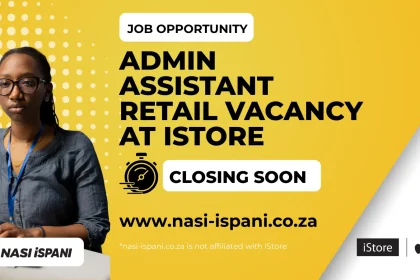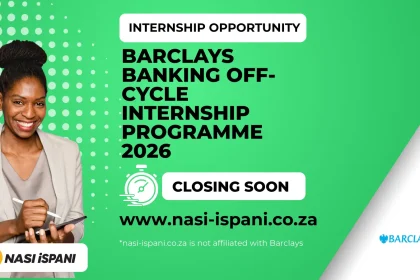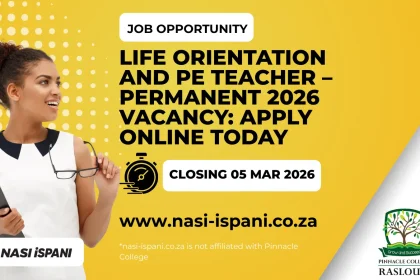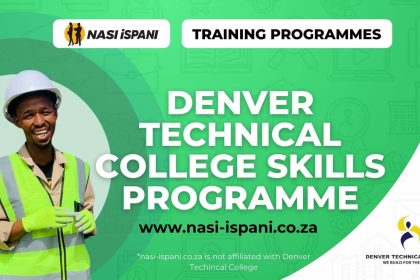Life After Matric: Alternatives to Higher Education
Getting Started with Nasi iSpani
How to Create Your Account and Navigate the Dashboard Finding a job…
Courier Vacancies at Path Care
Explore the latest Courier Vacancies at Path Care in Johannesburg and Trichardt.
AfriSam Engineering Bursary
Apply for the AfriSam Engineering Bursary 2026 for Mechanical or Electrical Engineering…
RedBull Student Marketeers
Discover how RedBull Student Marketeers drive campus brand engagement in South Africa.
General Worker Vacancies at the City of Tshwane
Explore the latest General Worker Vacancies at the City of Tshwane Department…
Admin Assistant Retail Vacancy at iStore
An Admin Assistant Retail vacancy is available at iStore Gateway in Durban.…
Barclays Banking Off Cycle Internship Programme 2026
Barclays is inviting applications for the Banking Off-Cycle Internship Programme 2026, based…
Life Orientation and PE Teacher – Permanent 2026 Vacancy: Apply Online Today
Pinnacle College Raslouw Preparatory in Centurion, Gauteng, is recruiting a permanent Life…
UNISA Internships 2026
Apply for UNISA Internships 2026 in Finance and Internal Audit. 12-month programme,…
Denver Technical College Skills Programme – with R4,000 Stipend
Youth living in Tshwane now have an opportunity to gain valuable practical…
Truworths Ladieswear In-House Fit Model Job Opportunity
Apply for the Truworths Ladieswear In-House Fit Model Job in Cape Town.











